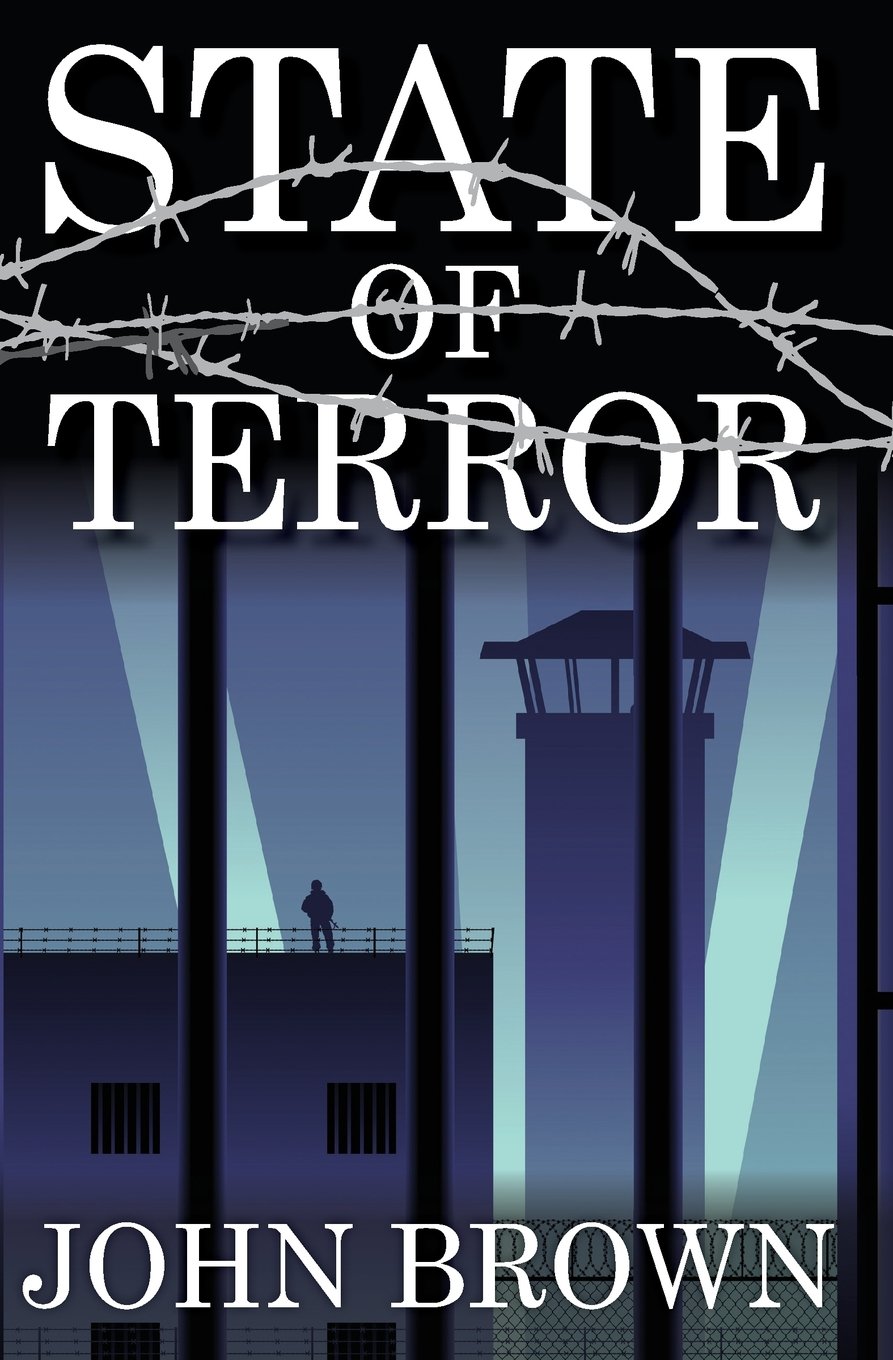OldSpeak
Book Review: State of Terror
By Adil Abdulla
June 13, 2013
 In his new book, State of Terror, John Brown turns fact into fiction while sketching how fiction could readily be turned into fact. The story centers on a police state installed in the United States under the guise of counterterrorism efforts. Since terrorists cannot be distinguished by simple profiling, the government is forced to monitor everything about everyone. Enter Tom Benson, a naïve veteran slowly turned against the government by months of unlawful detention and “questioning”. Symbolizing the average American, he enthusiastically embraces government propaganda, accepting prima facie that granting terrorists rights only serves to slow the hand of justice. It is only when he is branded a terrorist and thoroughly tortured without a trial that he begins to realize the importance of those fundamental rights. This story is a cautionary tale: watch the price of security carefully, for if you do not now, you might never get the chance again.
In his new book, State of Terror, John Brown turns fact into fiction while sketching how fiction could readily be turned into fact. The story centers on a police state installed in the United States under the guise of counterterrorism efforts. Since terrorists cannot be distinguished by simple profiling, the government is forced to monitor everything about everyone. Enter Tom Benson, a naïve veteran slowly turned against the government by months of unlawful detention and “questioning”. Symbolizing the average American, he enthusiastically embraces government propaganda, accepting prima facie that granting terrorists rights only serves to slow the hand of justice. It is only when he is branded a terrorist and thoroughly tortured without a trial that he begins to realize the importance of those fundamental rights. This story is a cautionary tale: watch the price of security carefully, for if you do not now, you might never get the chance again.
What is perhaps most striking about the dystopia Brown paints is how reasonable it initially seems. Who could oppose having to carry identification? Indeed, the vast majority of the details Brown uses to construct the setting are elements of the status quo. Modern law enforcement is already equipped with tanks, fusion centers, and qualified immunity. At first blush, the setting is nothing more than a fictionalized introduction to modern police tactics intended for casual reader – a wake-up call, to be sure, but no apocalypse.
However, it is the application of those elements to a wrongful arrest that demonstrates the true tragedy of a loss of liberty. The book gradually takes the tactics and technology used abroad and applies it internally. Internal passports are mandatory, Anti-Social Behaviour Orders are issued, and “enhanced interrogation” is used on an innocent man held in a black-site prison. And when any hint of opposition breaks out, law enforcement barely hesitates to kill pets, spread CS gas, and finally use drones and cruise missiles to subdue them. These tactics are used by Western militaries on the battlefield – Brown’s genius is in demonstrating that, soon, that battlefield might be here.
Society, moreover, is complacent. Officers charged with flagging suspicious electronic conversations assume guilt by association, and even guilt by vocabulary. Ordinary people hypochondriacally report behaviour that is not exactly in line with their expectations or desires. And when those around them are mistreated by law enforcement, they shrink away in hopes of avoiding similar treatment. None of this is new, but by definition, it’s rarely seen. The book suggests that this tacit acceptance is what enables the system to function. In the words of Edward R. Murrow, “A nation of sheep will beget a government of wolves.”
As for the story itself, there are some, perhaps intentional, issues. First and foremost, Tom Benson is a fantastical character. No one could reasonably accept a cold-blooded killer, computer hacker, master spy, rebellion organizer, and car chase expert who talks down a battalion of tanks just a few days after being released from a torture chamber. Unlike the jejune banter of everyone else, his speech and insight into constitutional rights are coherent despite months of mental and physical deprivation. And, probably out of Brown’s effort to portray him as the average red-blooded American, he retains his crude urges and lusts, though they somehow never affect his actions or judgement. Perhaps Brown is connoting that, absent such a deus ex machina, the police state is indomitable.
Ultimately, State of Terror has lots of insight into the modern police state, and paints a very believable picture of what’s to come if state surveillance and power continues to grow. If you’re looking for fictional literature to forget about the world and be immersed in a new one, leave this book alone. But if you want more awareness of the world around you, or simply a primer for A Government of Wolves, this book is for you.
DISCLAIMER: THE VIEWS AND OPINIONS EXPRESSED IN OLDSPEAK
ARE NOT NECESSARILY THOSE OF THE RUTHERFORD INSTITUTE.


